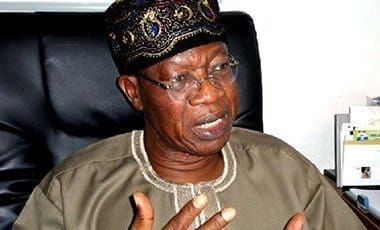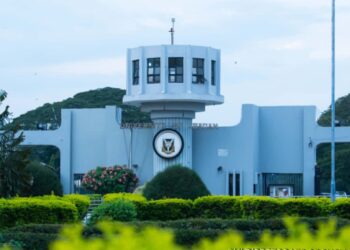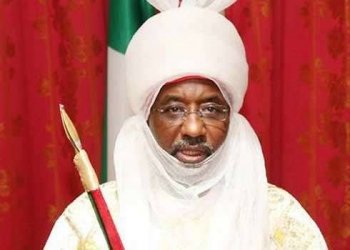THE Federal Government has said that Nigeria’s economy was hard hit by the global fall in the price of crude oil because the country failed to save for the rainy day.
The Minister of Information and Culture, Alhaji Lai Mohammed, also lamented the nation’s inability to invest in infrastructure, adding that the situation worsened the country’s economy.
Mohammed, who spoke on Thursday at the opening of the All Nigerian Editors Conference in Port Harcourt, explained that Nigeria had nothing to cushion the effect of the lost earnings.
He pointed out that many other oil producing countries and fellow members of the Organisation of Petroleum Exporting Countries were currently faring because they were able to save for the rainy day.
“Nigeria’s economy is hard hit by the fall in the price of crude oil because the country failed to save for the rainy day, coupled with the fact that the country did not invest in infrastructure.
“Nigeria has nothing to rely on to cushion the effects of the lost earnings. Many other oil producing countries and fellow OPEC members are faring better because they saved for the rainy day.
“Saudi Arabia, with about one-fifth of Nigeria’s population, has in foreign reserves about $600 billion (which is 23 times what Nigeria has in foreign reserves).
“United Arab Emirates, with less than 10 million people, has $75 billion in foreign reserves. Qatar, with 2.4 million people, has $36 billion in foreign reserves. Even Angola, with just 24 million people, has about 25 billion dollars in foreign reserves.
“Here in Nigeria, with oil selling consistently for over $100 a barrel for many years, we simply failed to save for the rainy day, with the result that a country with a population of over 170 million today has just 26 billion dollars in foreign reserves.
“To compound this, the fall in the price of crude is having a ripple effect: the scarcity of forex, which has resulted from the oil price crash, means that industries are struggling to get forex to import raw materials and machinery,” he said.
The minister, however, commended the Nigerian Guild of Editors for being part of the ongoing determination to tackle the various challenges facing the country, especially in the area of the economy.
He urged the Editors to do more by becoming the Champions of Change, saying, “Permit me to start my remarks by commending the Nigerian Guild of Editors for the well-thought-out theme for this 2016 Conference, which is ‘Economic Diversification: Agriculture as an option for a prosperous Nigeria’.
In his remark, the Rivers State Governor, Chief Nyesom Wike, explained that the hosting of the Guild of Editors’ conference would afford the editors the opportunity to see positive things about the state.
Maintaining that the state was safe for business, Wike pointed out that government was on top of the security situation as the rate of crime had gone down.
“Rivers State is not just a constituent of the Federal Republic; it is the nerve centre of the nation’s economy, and therefore host to the most critical economic infrastructure of the country.
“Therefore, the Federal Government has as much interest in the security and wellbeing of the state. Since we came on board, we have worked as hard with stakeholders to ensure and consolidate peace and security in the state.
“As a result, Rivers State under our watch is relatively peaceful, secure and virtually free from the vicious destruction of the nation’s oil and gas infrastructure in the Niger Delta by some of the resurgent militants.
“Do not get me wrong. I am not saying that Rivers State is free of crime, as no society is totally crime-free. However, while the sporadic episodes of armed robbery, hostage taking, cultism and related violence remain unacceptable; they are neither peculiar nor limited to this state.
“At any rate, we are on top of the security situation as the rate of crime is relatively lower that what Nigerians are experiencing in most other States of the Federation.
“So, Rivers State is clearly safe and secure for business and pleasure except in the imaginations of those who are deploying scare tactics to intimidate everybody in their attempts to salvage what is left of their degraded political relevance.
In his remark, the former governor of Delta State, Dr. Emmanuel Uduaghan, expressed the need for governor to be part of the process of resolving the problem of underdevelopment and militancy in the Niger Delta region.
Uduaghan, who gave the key note address at the event said the Amnesty Programme, explained that government failed to achieve the desired peace in the region because governors were not part of the engagement process.
Uduaghan pleaded with the Niger Delta Avengers to put an end to the attack on oil installation in the region, even as he urged the Federal Government to embrace the option of dialogue to stop the bombing on oil facilities.
“I want to appeal to our brothers in the Niger Delta Avengers that what they are doing is not just damaging the economy, but the waters. I appeal to them to stop it. The media should also help appeal to them to stop it,” he said.
Also, the Acting President of the Nigeria Guild of Editors, Mrs. Funke Egbemode, said they (Editors) were ready to help the country solved its economic problems.
“We are here to help Nigeria move beyond its economic setback. Here is a nation that once lived big, but we have slipped. Salaries are piling up.
“But this cannot be the end of this country. We can make agriculture work; we can start afresh. The Nigerian Guild of Editors can make that work,” Egbemode added.









